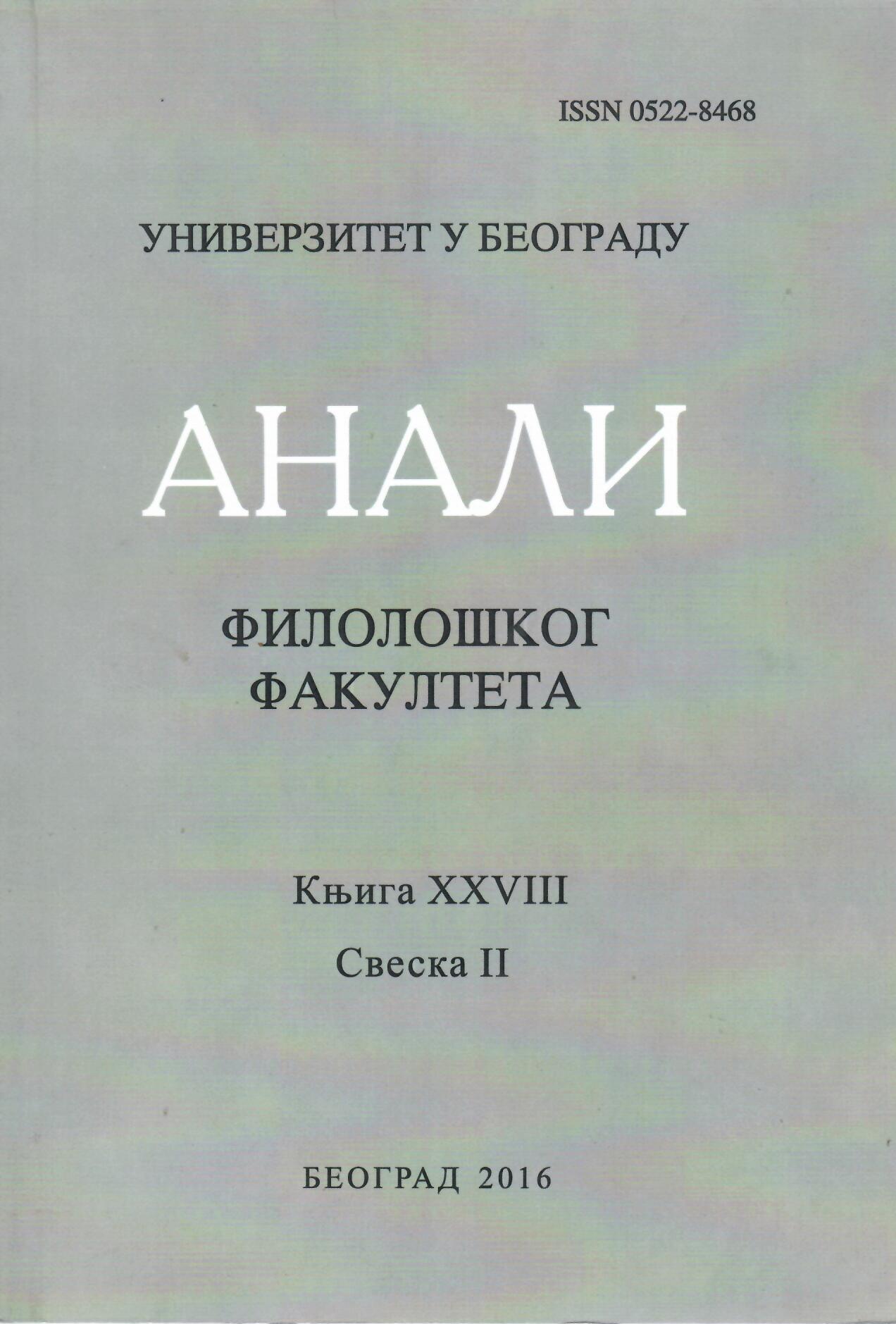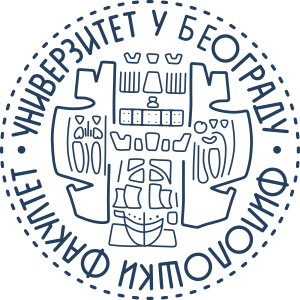Глаголски вид у српском и савременом грчком
између семантике и прагматике
DOI:
https://doi.org/10.18485/analiff.2016.28.2.15Keywords:
глаголски вид, тип глаголске ситуације, семантика, прагматикаAbstract
Основна функција лингвистичке категорије аспекта традиционално се означава терминима „аспект“ или „вид“, што указује на то да увек осликава став говорника према темпоралној контури стања или радње. Овакво посматрање радње огледа се у интерној анализи радње узимајући у обзир тренутке и етапе што се може видети у категоријама времена, аспекта и начина. Иако су временске морфеме конкретне, с обзиром на то да посматрач сваку радњу може да смести на временску осу, са друге стране аспектне структуре су готово сасвим апстрактне, јер зависе искључиво од угла посматрања. Управо то унутрашње посматрање радње може се употпунити додавањем параметара попут понављања, модификација у току радње или њеног интензитета, слагања неколико радњи у сложену.
У овом раду покушаћемо да дефинишемо границу између семантике и прагматике у употреби аспекта, потенцијално нудећи излаз из бесконачне дебате у области аспектологије поредећи аспектне системе српског и савременог грчког језика. Изузетно је важно да се направи јасна разлика између аспектних парова, аспекта и Aktionsart-a и опозиције перфективност/ имперфективност у оба језика. Уколико узмемо у обзир то да се категорија аспекта не може одвојити од категорије времена, потребно је дефинисати танку линију између ове две категорије.
Downloads
Published
How to Cite
Issue
Section
License

This work is licensed under a Creative Commons Attribution-ShareAlike 4.0 International License.
Authors who publish with this journal agree to the following terms:
- Authors are confirming that they are the authors of the submitting article, which will be published (print and online) in the journal Anali filološkog fakulteta by the Faculty of Philology, University of Belgrade (Faculty of Philology, Studentski trg 3, 11000 Belgrade, Serbia). Author’s name will be evident in the printed article in the journal. All decisions regarding layout and distribution of the work are in hands of the publisher.
- Authors guarantee that the work is their own original creation and does not infringe any statutory or common-law copyright or any proprietary right of any third party. In case of claims by third parties, authors commit their self to defend the interests of the publisher, and shall cover any potential costs.
- Authors retain copyright and grant the journal right of first publication with the work simultaneously licensed under a Creative Commons Attribution-ShareAlike 4.0 International License that allows others to share the work with an acknowledgement of the work's authorship and initial publication in this journal.
- Authors are able to enter into separate, additional contractual arrangements for the non-exclusive distribution of the journal's published version of the work (e.g., post it to an institutional repository or publish it in a book), with an acknowledgement of its initial publication in this journal.
- Authors are permitted and encouraged to post their work online (e.g., in institutional repositories or on their website) prior to and during the submission process, as it can lead to productive exchanges, as well as earlier and greater citation of published work.





